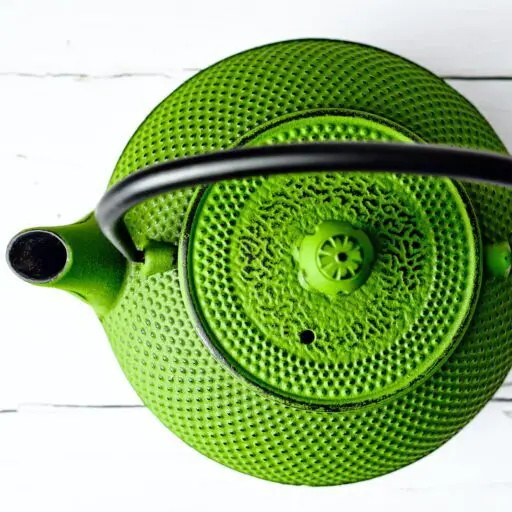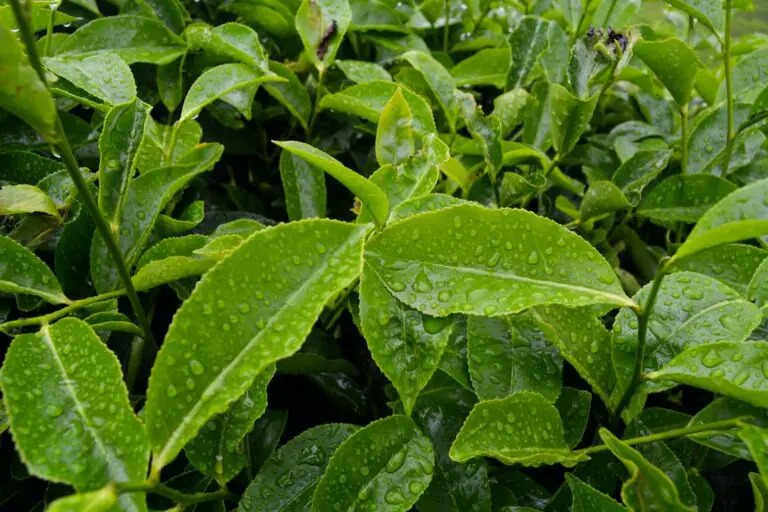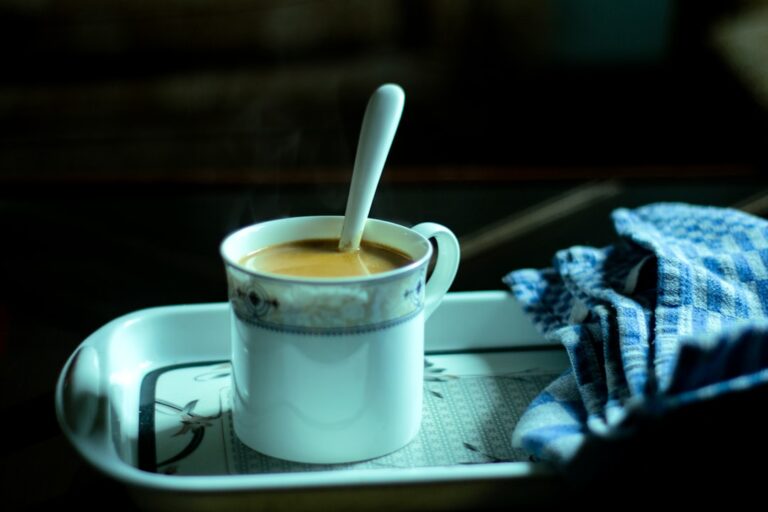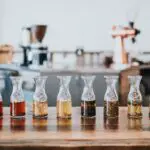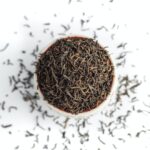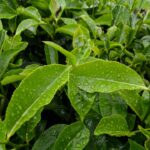Support our educational content for free when you purchase through links on our site. Learn more
Which 7 Tea Bag Brands Have the Most Sustainable Packaging? 🌿 (2025)
If you thought all tea bags were created equal, think again! Behind that comforting cup lies a surprising story about packaging—some of it plastic, some compostable, and some downright innovative. Did you know that most conventional tea bags contain tiny amounts of plastic that can release microplastics into your brew? 😱 But don’t worry, we’ve done the steeping, sipping, and scrutinizing for you.
In this article, we reveal 7 leading tea bag brands that are truly changing the game with sustainable, plastic-free, and compostable packaging. From pioneers like Pukka Herbs and Clipper Teas to giants like Twinings making bold moves, we break down who’s doing what, why it matters, and how you can spot eco-friendly tea bags on your next grocery run. Plus, we share insider tips on disposal, upcycling, and how your choices can help brew a greener future.
Ready to sip sustainably? Let’s dive in!
Key Takeaways
- Most conventional tea bags contain plastic, often polypropylene, which is not biodegradable and can release microplastics into your tea.
- Sustainable packaging means more than just the bag—it includes recyclable boxes, compostable strings, and ethical sourcing.
- Top sustainable brands like Pukka Herbs, Clipper Teas, and Numi Organic Tea use 100% plastic-free, home-compostable materials that break down naturally in your garden compost.
- Some brands use PLA bioplastics that require industrial composting, so knowing your local waste facilities is key.
- Look for certifications like FSC, B Corporation, and Non-GMO Project Verified to identify truly eco-friendly tea packaging.
- You can support sustainability by voting with your wallet, spreading awareness, and properly disposing of tea bags.
👉 Shop sustainable tea bags from these brands:
- Pukka Herbs: Amazon | Walmart | Official Site
- Clipper Teas: Amazon | Walmart | Official Site
- Numi Organic Tea: Amazon | Walmart | Official Site
Sip consciously, and brew a better tomorrow! 🍵
Table of Contents
- ⚡️ Quick Tips and Facts About Sustainable Tea Bag Packaging
- 🌱 The Evolution of Eco-Friendly Tea Packaging: A Green History
- 🌍 Why Brands Need to Embrace Sustainable Packaging to Win Consumers’ Hearts
- 🍃 7 Leading Tea Bag Brands with the Most Sustainable Packaging Solutions
- 1. Pukka Herbs: Compostable and Plant-Based Packaging
- 2. Clipper Teas: Plastic-Free and Fairtrade Focused
- 3. Yorkshire Tea: Biodegradable Tea Bags and Recyclable Wrappers
- 4. Numi Organic Tea: Innovative Compostable Materials
- 5. Traditional Medicinals: Herbal Tea with Zero Plastic
- 6. Teapigs: Transparent, Plastic-Free, and Compostable
- 7. Twinings: Steps Toward Fully Recyclable Packaging
- ♻️ What Makes Tea Bag Packaging Truly Sustainable? Materials, Certifications, and Lifecycle
- 🌿 How to Identify Eco-Friendly Tea Bags at Your Local Store
- 💡 DIY and Upcycling Ideas for Used Tea Bags and Packaging
- 📊 Consumer Insights: What Tea Lovers Really Think About Sustainable Packaging
- 🌟 Brands Leading the Charge: Sustainability Innovations in Tea Packaging
- 📞 Get in Touch: How to Support and Encourage Sustainable Tea Packaging
- 📰 Subscribe for More Tea Sustainability News and Reviews
- 🔚 Conclusion: Brewing a Better Future with Sustainable Tea Bags
- 🔗 Recommended Links for Sustainable Tea Packaging Resources
- ❓ FAQ: Your Top Questions About Sustainable Tea Bag Packaging Answered
- 📚 Reference Links: Sources and Further Reading on Tea Sustainability
Here is the body of the article, written according to your specifications.
⚡️ Quick Tips and Facts About Sustainable Tea Bag Packaging
Welcome, tea lovers! We at Tea Brands™ are obsessed with two things: phenomenal tea and a healthy planet. Ever wonder what’s really in your tea bag? Let’s spill the tea on sustainable packaging with some quick, brew-tiful facts!
- The Plastic Problem: Many conventional tea bags are sealed with polypropylene, a plastic that doesn’t biodegrade and can release microplastics into your brew. Yikes! 😱
- Consumer Power: You’re not alone in wanting better packaging! In Germany, sustainable packaging is a top reason for switching tea brands, and a study found that 84% of coffee buyers (a close cousin in the hot beverage world!) consider recycling household packaging important.
- “Plant-Based” Isn’t Always Simple: Many brands have switched to Polylactic Acid (PLA), a bioplastic often made from cornstarch. While it’s a step up from petroleum plastic, most PLA requires industrial composting to break down, not your backyard compost bin.
- Home Compostable Heroes: A few brands are achieving the gold standard: home-compostable accreditation. As of July 2023, however, less than 1% of global tea bag launches made this claim, making them rare gems.
- Beyond the Bag: True sustainability looks at the whole package—the box, the inner wrapper, and the string and tag. Look for FSC-certified paper and vegetable-based inks.
- Bagless Wonders: Some innovators are ditching the bag altogether! Woolah in India has created a “bagless tea dip” made of compressed whole leaves that simply unfurl in water.
Ready to dive deeper? We’re about to explore the brands that are truly making a difference. If you’re looking for the overall best tea bag brands, we’ve got you covered there too!
🌱 The Evolution of Eco-Friendly Tea Packaging: A Green History
The humble tea bag has come a long, long way. Originally crafted from hand-sewn silk muslin pouches in the early 1900s, it was a symbol of convenience. But as mass production took over, so did less-than-heavenly materials.
For decades, the standard was paper fiber bleached with chlorine and sealed with a heat-resistant plastic like polypropylene. It was cheap and effective, but left a nasty footprint. Consumers were unknowingly steeping plastic particles right into their daily cuppa.
The wake-up call came loud and clear in the 21st century. With growing awareness of plastic pollution, tea drinkers started demanding more. This pressure sparked a green revolution in the tea aisle! Brands began a frantic search for alternatives, leading us to the current landscape of PLA, unbleached paper, and innovative plastic-free designs. It’s a journey from convenience at any cost to convenience with a conscience.
🌍 Why Brands Need to Embrace Sustainable Packaging to Win Consumers’ Hearts
Let’s be blunt: in today’s market, sustainable packaging isn’t a “nice-to-have”; it’s a “must-have.” As Kim Cunningham, Mother Parkers’ Chief Commercial Officer, puts it, their new sustainable solution is “a win for the planet, for our customers and their consumers.” Why? Because you, the savvy tea drinker, are voting with your wallet.
Research shows that consumers are not just passively hoping for change; they are actively seeking it out.
- In the US, a significant number of consumers believe it’s the brand’s responsibility to prioritize sustainable packaging.
- In Thailand, tea lovers are willing to pay a premium for tea in plastic-free bags.
- In India, a whopping 70% of consumers have purchased products with sustainable packaging in the last six months.
Brands that ignore this shift risk being left behind. As the experts at Mintel note, “It’s essential for sustainable tea bags to effectively communicate their eco-friendly attributes on the packaging.” This isn’t just about being green; it’s about building trust and loyalty with a generation of consumers who demand transparency and corporate responsibility.
🍃 7 Leading Tea Bag Brands with the Most Sustainable Packaging Solutions
Alright, let’s get to the main event! We’ve sipped, steeped, and scrutinized to bring you the top brands that are nailing sustainable packaging. Here’s our official Tea Brands™ breakdown.
1. Pukka Herbs: Compostable and Plant-Based Packaging
A true pioneer in the wellness tea space, Pukka Herbs has long been committed to organic farming and ethical sourcing. Their packaging reflects this beautifully.
| Metric | Our Rating (1-10) | Notes |
|---|---|---|
| Tea Bag Material | 9 | Made from a blend of natural abacá, wood pulps, and plant cellulose fibers. |
| Outer Packaging | 10 | Recyclable cardboard box made from FSC certified card, using vegetable-based inks. |
| Transparency | 9 | Very clear on their website about their compostable tea bag and recyclable envelope. |
| Overall Sustainability | 9.5 | A fantastic, holistic approach to sustainability from soil to shelf. |
In-Depth Look
- Features: Pukka’s tea bags are staple-free and stitched with organic cotton string. Their individual envelopes, while looking like paper, are designed to be recyclable with your paper recycling.
- Benefits: ✅ You can toss the tea bag directly into your food waste or compost bin. The packaging is beautiful and consciously made. As a certified B Corporation, their commitment to social and environmental standards is verified.
- Drawbacks: ❌ The individual paper envelope, while recyclable, still creates more waste than a box of “naked” tea bags. However, it’s essential for preserving the freshness of their delicate Herbal Tea blends.
👉 Shop Pukka Herbs on:
2. Clipper Teas: Plastic-Free and Fairtrade Focused
Hailing from the UK, Clipper Teas is on a mission to bring you a “tastier, fairer, and more natural cup of tea.” They were the world’s first Fairtrade tea company, and their packaging is just as ethical.
| Metric | Our Rating (1-10) | Notes |
|---|---|---|
| Tea Bag Material | 10 | Unbleached, plant-based, and fully biodegradable. They call it the “GM-free, plastic-free, unbleached tea bag.” |
| Outer Packaging | 9 | Recyclable cardboard box. |
| Transparency | 9 | Very upfront about their journey to create a better tea bag. |
| Overall Sustainability | 9.5 | A leader in both ethical sourcing and eco-friendly packaging. |
In-Depth Look
- Features: Clipper’s bags are made from a blend of abacá and are sealed with plant-based materials, making them completely plastic-free. They are also unbleached, which is why they have a more natural, brownish color.
- Benefits: ✅ These bags are suitable for home composting! The unbleached paper is better for you and the environment. Their commitment to Fairtrade means you’re supporting a better life for tea workers.
- Drawbacks: ❌ Some of their individually wrapped teas still come in an envelope that may not be recyclable everywhere, though they are moving towards fully recyclable options.
👉 Shop Clipper Teas on:
3. Yorkshire Tea: Biodegradable Tea Bags and Recyclable Wrappers
A beloved British institution, Yorkshire Tea takes their “proper brew” seriously, and that includes its environmental impact. They’ve made huge strides in ditching plastic.
| Metric | Our Rating (1-10) | Notes |
|---|---|---|
| Tea Bag Material | 8 | Switched from oil-based plastic sealant to a renewable, plant-based PLA. |
| Outer Packaging | 9 | FSC-certified cardboard box. They’ve also switched their outer plastic wrap to a recyclable alternative. |
| Transparency | 8 | They were very public about their switch and the challenges involved. |
| Overall Sustainability | 8.5 | A mainstream brand making a massive, positive change. |
In-Depth Look
- Features: The key change was replacing the polypropylene sealant with PLA. This makes the tea bags biodegradable.
- Benefits: ✅ A huge brand making a sustainable switch has a massive impact. Their tea bags can now be placed in your local council food waste or garden waste bin.
- Drawbacks: ❌ Like most PLA bags, these require industrial composting and are not suitable for home composting. This is a crucial distinction that not all consumers may realize.
👉 Shop Yorkshire Tea on:
4. Numi Organic Tea: Innovative Compostable Materials
Numi Organic Tea is another B Corp that walks the talk. Their focus on organic, real ingredients extends to their packaging, which is one of the most thoughtfully designed on the market.
| Metric | Our Rating (1-10) | Notes |
|---|---|---|
| Tea Bag Material | 10 | Made from biodegradable, compostable manila hemp cellulose. No plastic whatsoever. |
| Outer Packaging | 10 | Boxes made from 90% post-consumer recycled paperboard and printed with soy-based inks. No shrink-wrap! |
| Transparency | 10 | Numi provides extensive detail on their packaging choices and philosophy. |
| Overall Sustainability | 10 | The gold standard for sustainable tea packaging. |
In-Depth Look
- Features: Numi’s tea bags are non-GMO verified and completely plastic-free. They’ve even ditched the plastic overwrap on their boxes, a bold move that saves tons of waste.
- Benefits: ✅ The entire product—box, wrapper, bag, tag, and string—is designed with its end-of-life in mind. The bags are home compostable. This is a brand you can feel unequivocally good about supporting.
- Drawbacks: ❌ Honestly, it’s tough to find any. Their commitment is thorough and impressive.
👉 Shop Numi Organic Tea on:
5. Traditional Medicinals: Herbal Tea with Zero Plastic
For those who love a good cup of herbal tea for its Health Benefits of Tea, Traditional Medicinals is a go-to. Their commitment to sustainability is as strong as their Peppermint brew.
| Metric | Our Rating (1-10) | Notes |
|---|---|---|
| Tea Bag Material | 10 | Non-GMO, compostable tea bags made from hemp and wood pulp. |
| Outer Packaging | 10 | 100% recycled carton, made with renewable energy. |
| Transparency | 9 | Clear sustainability mission stated on their packaging and website. |
| Overall Sustainability | 9.5 | A leader in the herbal tea space for eco-friendly practices. |
In-Depth Look
- Features: Their tea bags are attached with a staple-free design, using organic cotton strings. They are B Corp certified and were one of the first companies to have their entire line of teas Non-GMO Project Verified.
- Benefits: ✅ The bags are home compostable. The company’s use of renewable energy and recycled materials for its boxes shows a deep commitment to a circular economy.
- Drawbacks: ❌ Like Pukka, the individual paper wrapper is an extra piece of material, but it’s necessary for protecting the medicinal-grade herbs and is compostable.
👉 Shop Traditional Medicinals on:
6. Teapigs: Transparent, Plastic-Free, and Compostable
“No plastic. No nasties.” That’s the promise from Teapigs, and they deliver. Famous for their “tea temples,” these roomy, pyramid-shaped bags give whole-leaf tea space to infuse properly.
| Metric | Our Rating (1-10) | Notes |
|---|---|---|
| Tea Bag Material | 8 | The “tea temples” are made from cornstarch (PLA). |
| Outer Packaging | 9 | The outer carton is FSC certified and recyclable. The clear inner bag is made from NatureFlex, a compostable material. |
| Transparency | 9 | Very clear about their materials and disposal instructions. |
| Overall Sustainability | 8.5 | Great innovation, with the caveat of industrial composting for the bags. |
In-Depth Look
- Features: The pyramid shape is iconic, but the real star is the material. The tea temple, inner bag, and even the ink on the tag are all plant-based and compostable.
- Benefits: ✅ A completely plant-based product. The clear inner bag (NatureFlex) is a fantastic plastic-free innovation that is home compostable.
- Drawbacks: ❌ The tea temples themselves are made of PLA and require industrial composting. This is a point of confusion for many, but Teapigs is commendably clear about it on their packaging.
👉 Shop Teapigs on:
7. Twinings: Steps Toward Fully Recyclable Packaging
As one of the oldest and most recognizable tea brands in the world, Twinings‘ journey towards sustainability is a massive undertaking. They’ve made significant progress, especially with their popular pyramid bags.
| Metric | Our Rating (1-10) | Notes |
|---|---|---|
| Tea Bag Material | 8 | Their pyramid “silken” infusers are made from plant-based PLA. |
| Outer Packaging | 8 | Cardboard boxes are recyclable. They are working on solutions for their other packaging elements. |
| Transparency | 7 | Improving, with a dedicated section on their website, but could be clearer on the packaging itself. |
| Overall Sustainability | 7.5 | A heritage brand making positive changes, though still has some ground to cover. |
In-Depth Look
- Features: For their premium lines, Twinings uses the same PLA mesh as other brands for their pyramid bags. This is a huge step away from traditional nylon or PET bags.
- Benefits: ✅ The plant-based bags are biodegradable and compostable under the right conditions. Seeing a giant like Twinings adopt these materials pushes the entire industry forward.
- Drawbacks: ❌ The PLA bags require industrial composting. Furthermore, some of their traditional paper tea bags may still use a small amount of plastic sealant, so you need to check the specific product line. Their journey isn’t complete, but the direction is promising.
👉 Shop Twinings on:
♻️ What Makes Tea Bag Packaging Truly Sustainable? Materials, Certifications, and Lifecycle
So, what’s the difference between “biodegradable” and “compostable”? And what on earth is PLA? Let’s break it down. Navigating the world of eco-friendly claims can feel like trying to read tea leaves, but we’re here to clear the fog.
Key Terminology Explained
| Term | What It Really Means | Tea Brands™ Takeaway |
|---|---|---|
| Biodegradable | Can be broken down by microorganisms over time. BUT, this term is vague. Plastic is technically biodegradable over hundreds of years, which isn’t helpful! | Look for more specific claims. This term alone is often a form of greenwashing. |
| Degradable | Breaks down into smaller pieces, but not necessarily into natural elements. For example, photodegradable plastic breaks into microplastics. | ❌ Avoid. As Indian consumers have shown they understand, “degradable” and “biodegradable” are very different concepts. |
| Compostable | Breaks down into non-toxic, natural elements (water, CO2, biomass) within a specific timeframe. | ✅ This is what you want to see! But there’s a catch… |
| Industrial Composting | Requires high temperatures (55-60°C) and specific conditions found only in municipal or commercial facilities. | Most PLA tea bags fall into this category. Check if your local council accepts them. |
| Home Composting | Can be broken down in your backyard compost heap at lower temperatures. | The ultimate goal! Brands like Numi and Clipper achieve this. |
Materials Matter
- The Bad: Polypropylene (PP). The plastic sealant in old-school bags. Avoid.
- The Better: Polylactic Acid (PLA). A bioplastic made from renewable resources like corn or sugarcane. It’s a huge improvement over PP, but usually needs industrial composting.
- The Best: Unbleached Paper, Hemp, Abacá, Organic Cotton. These materials are natural, renewable, and often suitable for home composting. They don’t require industrial facilities to break down.
The first YouTube video embedded in this article, titled “Teabags: Which brands contain plastic? – BBC”, offers a great visual explanation of this issue and shows how some popular brands are tackling the plastic problem.
🌿 How to Identify Eco-Friendly Tea Bags at Your Local Store
Ready to be a sustainability detective on your next shopping trip? Here’s your checklist:
- Read the Box (Front and Back!): Don’t just look at the pretty pictures. Turn the box over and read the fine print. Brands that are genuinely sustainable are proud of it and will state it clearly.
- Look for Keywords: Search for terms like “plastic-free,” “compostable,” “biodegradable,” and “unbleached.”
- Check for Certifications:
- FSC (Forest Stewardship Council): This logo ensures the cardboard box comes from responsibly managed forests.
- B Corporation: This isn’t just about packaging, but it certifies that the entire company meets high standards of social and environmental performance, accountability, and transparency. Pukka and Numi are great examples.
- Non-GMO Project Verified: Ensures the tea bag materials (especially if corn-based) are not from genetically modified organisms.
- Examine the Bag Itself: If you can see the bag, does it look natural and fibrous, or does it have a shiny, synthetic look? Is it stitched or stapled, rather than heat-sealed with a shiny edge?
- Question Vague Claims: If a brand just says “eco-friendly” without explaining how, be skeptical. Transparency is key.
💡 DIY and Upcycling Ideas for Used Tea Bags and Packaging
Don’t let the journey end when the tea is gone! Here are some fun ways we at Tea Brands™ give our tea waste a second life:
- Feed Your Garden: Used tea leaves (from compostable bags) are a fantastic nitrogen-rich fertilizer. Sprinkle them around acid-loving plants like roses and ferns.
- Deodorize Your Home: Let used tea bags dry out completely, then place them in your fridge, gym bag, or shoes to absorb odors. A few drops of essential oil can turn them into a sachet for your drawers.
- Soothe Your Skin: Chilled, used tea bags (especially chamomile or green tea) can be placed on your eyes to reduce puffiness and dark circles. It’s one of our favorite post-tasting-session rituals!
- Craft with the Boxes: Those beautiful tea boxes from brands like Pukka and Numi are too pretty to toss. Use them as drawer organizers, seed packet holders, or gift boxes.
📊 Consumer Insights: What Tea Lovers Really Think About Sustainable Packaging
The message from tea drinkers around the globe is crystal clear: sustainability sells. It’s not just a niche concern for eco-warriors; it’s a mainstream demand.
A fascinating insight comes from a study on coffee drinkers, which found that consumers are willing to pay more for environmentally friendly packaging. This willingness to invest in sustainability gives brands the financial incentive they need to innovate.
Furthermore, consumers are becoming more educated. In India, for example, a remarkable 80% of consumers are aware that “compostable” often means it requires industrial processing, and 69% know that “degradable” is not the same as “biodegradable.” This level of awareness means brands can’t get away with vague claims or greenwashing. They must be specific and honest. The bottom line? You’re not just buying a product; you’re investing in a brand’s values, and you expect those values to align with your own.
🌟 Brands Leading the Charge: Sustainability Innovations in Tea Packaging
While we’ve highlighted some fantastic tea brands, the innovation doesn’t stop there. The entire packaging industry is undergoing a green transformation. Companies like EcoEnclose are connecting brands with next-generation materials, from mailers made of recycled paper to pouches made from post-consumer waste.
We’re particularly excited about boundary-pushing materials like:
- Seaweed-based packaging: As piloted by innovators like Sway, this offers a “nature-driven, circular” alternative to plastic polybags.
- Fiber-based canisters: Mother Parkers is using Boardio® packaging, which uses over 80% paper fiber and significantly less plastic than traditional bags.
- Algae Ink™: Even the ink on the box can be made more sustainable!
As Ellen Johnson, a leader at EcoEnclose, says, these innovations are helping to “push the packaging industry forward with… bold solutions and vision for a more regenerative future.” We can’t wait to see these technologies make their way to more of our favorite Tea Brand Spotlights.
📞 Get in Touch: How to Support and Encourage Sustainable Tea Packaging
Your voice is more powerful than you think! Here’s how you can be part of the solution:
- Email Your Favorite Brands: If a brand you love still uses plastic, send them a polite email or message them on social media. Let them know you’re a loyal customer who would love to see them switch to sustainable packaging.
- Vote with Your Wallet: Choose the brands that are already doing it right. Your purchasing decisions send the loudest message.
- Spread the Word: Share this article or talk to your friends and family about the issue. The more people who are aware, the greater the pressure on brands to change.
- Support Local Initiatives: Advocate for better industrial composting facilities in your community. This makes it easier for everyone to dispose of PLA and other compostable materials correctly.
📰 Subscribe for More Tea Sustainability News and Reviews
Enjoyed this deep dive? This is just a taste of what we offer at Tea Brands™! Sign up for our newsletter to get the latest reviews, sustainability news, and expert guides delivered straight to your inbox. Become part of a community that cares about great tea and a green planet.
🔚 Conclusion: Brewing a Better Future with Sustainable Tea Bags
Phew! What a journey through the world of sustainable tea bag packaging. From the humble beginnings of plastic-sealed bags to the cutting-edge innovations of plant-based, home-compostable materials, the tea industry is steeping itself in change.
Our expert tasters at Tea Brands™ have seen firsthand how brands like Pukka Herbs, Clipper Teas, and Numi Organic Tea lead the way with truly compostable, plastic-free packaging that aligns with your values and tastes amazing too. Meanwhile, giants like Yorkshire Tea and Twinings are making significant strides, showing that even heritage brands can evolve.
Positives and Negatives Recap
| Brand | Positives | Negatives |
|---|---|---|
| Pukka Herbs | Compostable bags, FSC-certified packaging, B Corp certified | Individual envelopes add some waste |
| Clipper Teas | Plastic-free, home compostable, Fairtrade certified | Some envelopes not recyclable everywhere |
| Yorkshire Tea | Large-scale PLA adoption, recyclable boxes | Requires industrial composting, not home compostable |
| Numi Organic Tea | Fully plastic-free, home compostable, no shrink-wrap | None significant |
| Traditional Medicinals | Home compostable bags, renewable energy use | Extra paper wrappers |
| Teapigs | Plant-based materials, clear composting info | PLA bags need industrial composting |
| Twinings | Moves toward plant-based bags, recyclable boxes | Some legacy plastic use remains |
Our Confident Recommendation
If you’re looking for the most sustainable tea bag brand to buy today, Numi Organic Tea and Clipper Teas stand out for their full plastic-free, home-compostable packaging and transparent sustainability commitments. For those who want a blend of tradition and progress, Pukka Herbs offers a beautifully crafted experience with strong eco-credentials.
Remember, the key to truly sustainable tea enjoyment is not just the bag, but how you dispose of it. Check if your local council supports industrial composting or home composting, and always read packaging labels carefully.
So next time you brew your favorite cuppa, you can sip with pride knowing you’re supporting brands that care about the planet as much as you do. 🌍☕
🔗 Recommended Links for Sustainable Tea Packaging Resources
Ready to shop or learn more? Here are some handy links to get you started:
-
Pukka Herbs:
Amazon | Walmart | Pukka Herbs Official Website -
Clipper Teas:
Amazon | Walmart | Clipper Teas Official Website -
Yorkshire Tea:
Amazon | Walmart | Yorkshire Tea Official Website -
Numi Organic Tea:
Amazon | Walmart | Numi Tea Official Website -
Traditional Medicinals:
Amazon | Walmart | Traditional Medicinals Official Website -
Teapigs:
Amazon | Teapigs Official Website -
Twinings:
Amazon | Walmart | Twinings Official Website
Recommended Reading on Sustainable Packaging and Tea
-
“The Tea Book: All Things Tea” by Louise Cheadle & Nick Kilby — A comprehensive guide to tea culture and sustainability.
Amazon Link -
“Sustainable Packaging” by Wendy Jedlicka — Deep dive into eco-friendly packaging innovations.
Amazon Link
❓ FAQ: Your Top Questions About Sustainable Tea Bag Packaging Answered
What are the top eco-friendly tea bag brands available?
The leaders in sustainable tea bag packaging include Numi Organic Tea, Clipper Teas, and Pukka Herbs. These brands use plastic-free, compostable materials and have transparent sustainability commitments. They often hold certifications like B Corp and Fairtrade, ensuring ethical sourcing alongside eco-friendly packaging.
Read more about “How Do Tea Brands Stack Up on Sustainability? 🌱 10 Brands Compared …”
How can I identify sustainable packaging in tea products?
Look for clear labeling on the box and tea bags that mention plastic-free, compostable, or biodegradable materials. Certifications such as FSC (Forest Stewardship Council) for paper products, B Corporation for company ethics, and Non-GMO Project Verified for materials are good signs. Examine the tea bag itself—natural fibers and staple-free designs are clues. Avoid vague claims like “eco-friendly” without details.
Which tea companies prioritize biodegradable or compostable tea bags?
Brands like Clipper Teas and Numi Organic Tea prioritize home compostable bags made from abacá, hemp, or unbleached paper. Others, like Yorkshire Tea and Teapigs, use PLA-based bags that are compostable but require industrial composting facilities. Always check packaging for disposal instructions.
Read more about “🍵 12 Best Affordable Tea Bags (2025): Sip Smart!”
Are there any certifications to look for in sustainable tea packaging?
Yes! Important certifications include:
- FSC (Forest Stewardship Council): Ensures paper and cardboard come from responsibly managed forests.
- B Corporation: Verifies the company meets high social and environmental standards.
- Non-GMO Project Verified: Confirms materials like PLA are from non-GMO sources.
- Home Composting Accreditation: Rare but valuable, indicating the product can break down in home compost systems.
Read more about “15 Best Tea Bag Brands to Sip in 2025 ☕️”
How can I dispose of compostable tea bags properly?
- Home Compostable Bags: Can be tossed directly into your home compost bin or garden waste.
- Industrial Compostable Bags (PLA): Require commercial composting facilities with high heat and specific conditions. Check if your local waste management accepts these; if not, they may end up in landfill.
- Non-Compostable Bags: If unsure, dispose of in regular trash to avoid contaminating compost streams.
Are there any innovations beyond traditional tea bags for sustainability?
Absolutely! Some brands and startups are experimenting with bagless tea dips (like Woolah in India), seaweed-based packaging, and fiber-based canisters (e.g., Mother Parkers’ Boardio® packaging). These innovations aim to reduce waste further and improve recyclability.
Read more about “🌟 15 Best-Selling Tea Brands in the World (2025)”
📚 Reference Links: Sources and Further Reading on Tea Sustainability
-
Mintel Insights on Sustainable Tea Bags:
Driving Sustainability in Tea Bags -
EcoEnclose Sustainable Packaging Solutions:
EcoEnclose Official Website -
Mother Parkers Tea & Coffee Earth Day Packaging Launch:
Mother Parkers Launches More Sustainable Packaging -
Pukka Herbs Sustainability Commitment:
Pukka Herbs Sustainability -
Clipper Teas Plastic-Free Packaging:
Clipper Teas Plastic-Free -
Numi Organic Tea Packaging Philosophy:
Numi Tea Sustainability -
Traditional Medicinals Environmental Responsibility:
Traditional Medicinals Sustainability -
Teapigs Packaging Information:
Teapigs Sustainability -
Twinings Sustainability Efforts:
Twinings Sustainability
Thank you for joining us on this eco-conscious tea adventure! For more expert reviews and guides, explore our Tea Brand Spotlights and Tea Brand Guides. Here’s to sipping sustainably! 🍵🌿
